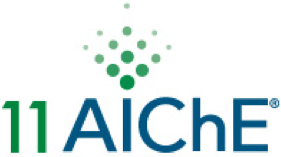

Growing demand for clean fuels has led to a renewed urgency in the search for alternative fuels. With the recent shale gas development initiatives, natural gas is poised to capture a much larger share of the energy market. Being clean-burning, natural gas provides many environmental advantages over oil and is also a more economical source of energy.
LNG processing technologies are required for purification and transportation of natural gas before it can be used as a fuel. The LNG processing technologies include liquefaction followed by transportation and gasification of natural gas for use by a consumer. In this paper, all processes involved in LNG processing are simulated using the Aspen Plus software. The simulation is followed by a comprehensive sustainability assessment which covers safety and efficiency assessment, in addition to economical and environmental considerations.
The Enhanced Inherent Safety method used for the safety assessment can be a good tool in the early design stage. Energy and exergy efficiency of the processes involved in LNG processing technologies are evaluated. The assessment identifies the major factors contributing to the efficiency and safety concerns in the technology that is currently used, and provides guidance to designers for future improvements.
